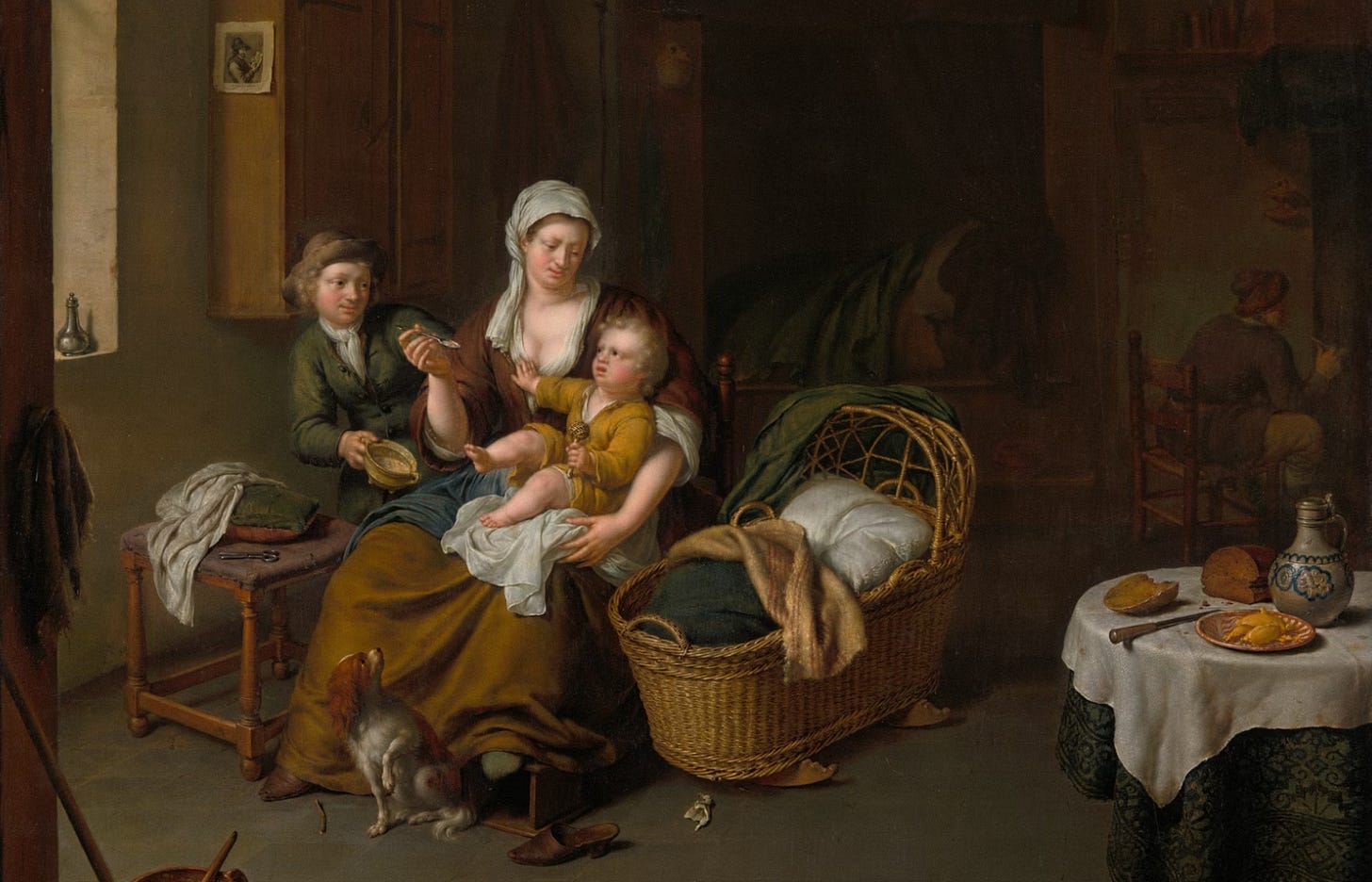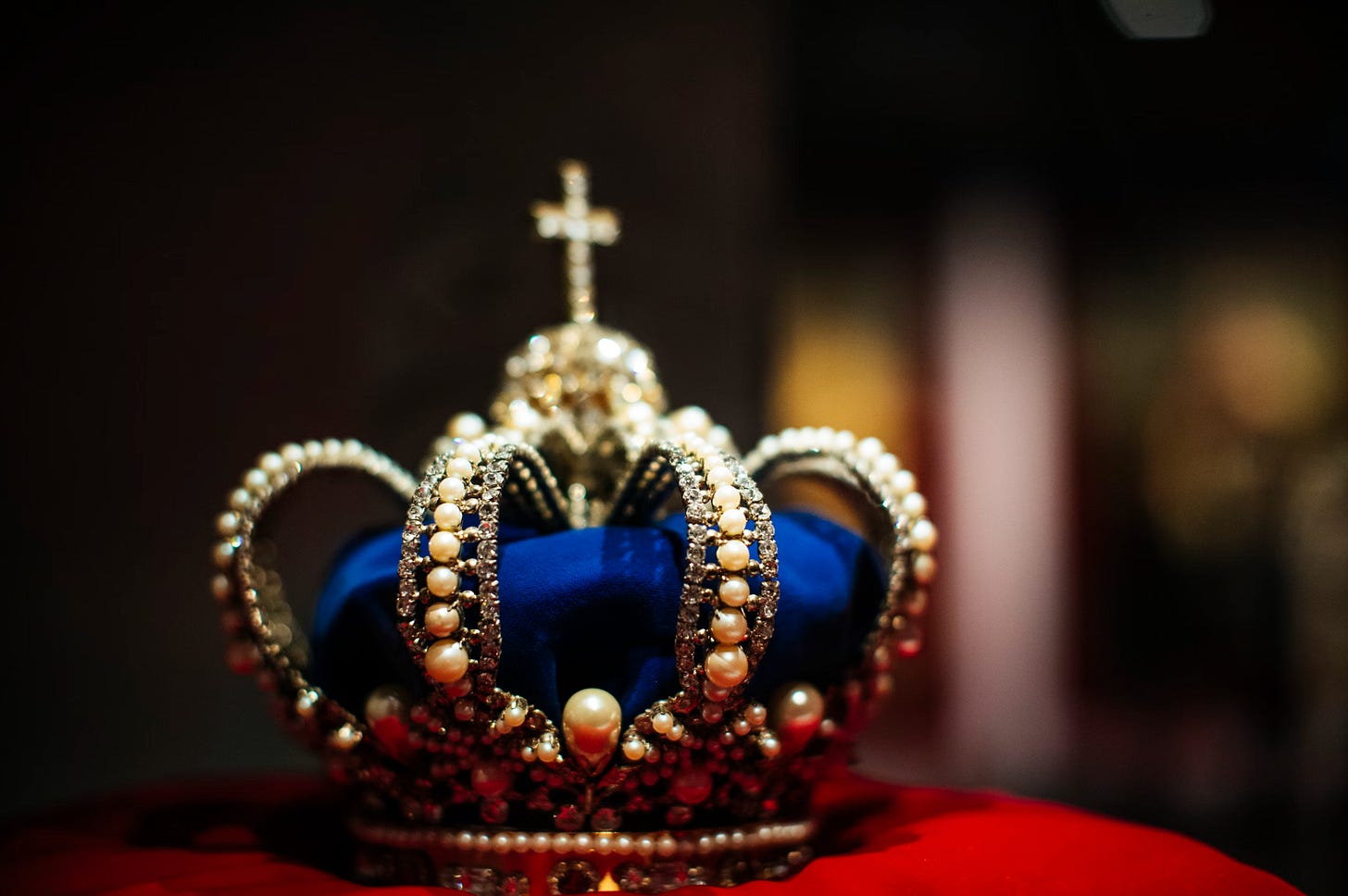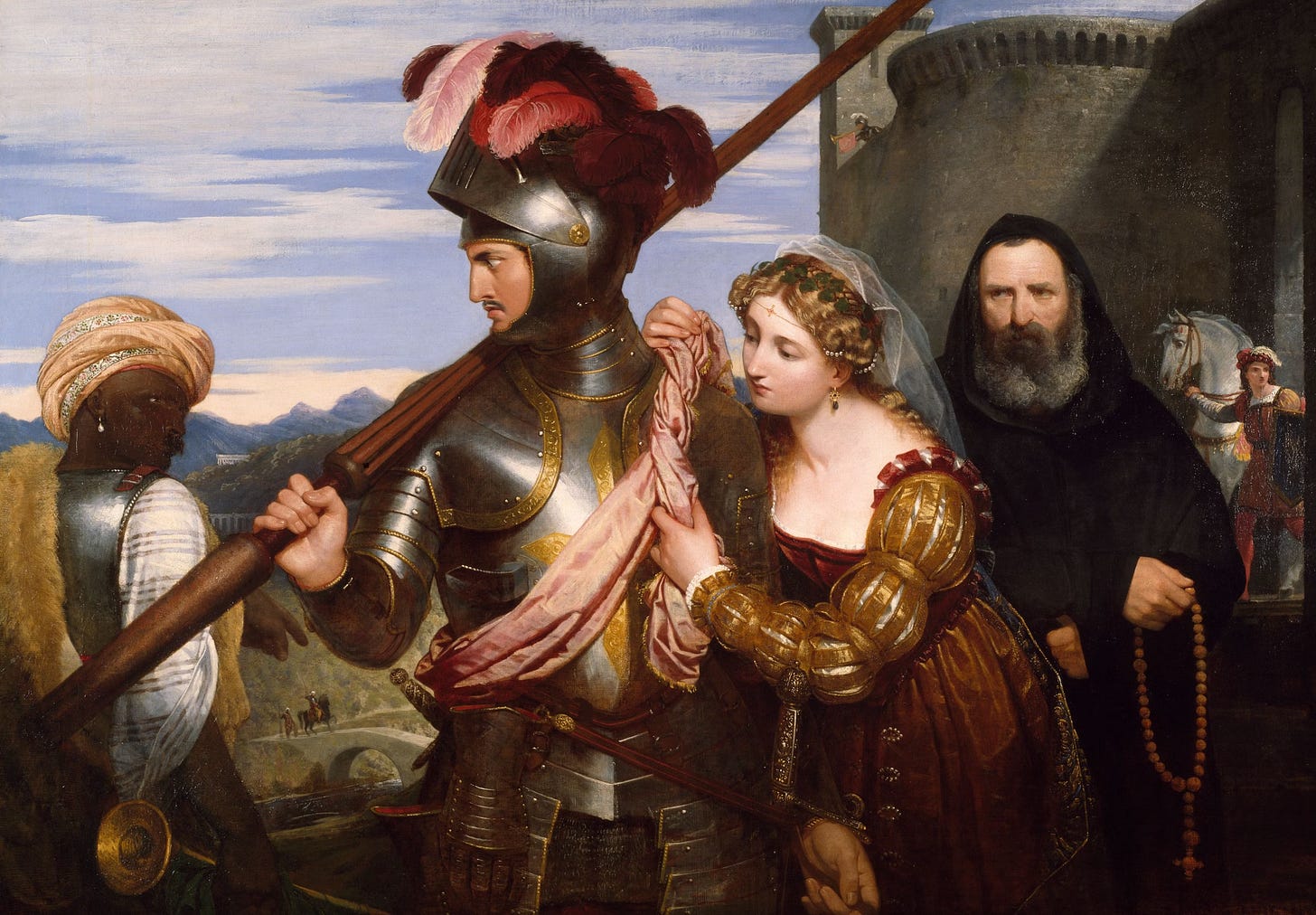Project 2025 and Crusader Bros: Deconstructing Opus Dei with Shannon Vavich
A Whiplash Podcast Recap
“It would all be better if there was a Catholic king.”
That sentence—spoken casually over dinner by a recruiter’s family member—stuck with Shannon Vavich for years. At the time, she brushed it off as absurd. A Catholic monarchy? In America? Impossible.
But now, with Donald Trump’s second inauguration in January, and as Project 2025 lays out a vision for a theocratic takeover of U.S. institutions, Shannon’s memory of that Opus Dei recruitment dinner in North Carolina no longer feels far-fetched.
Shannon Vavich, a military spouse, mother of seven, and creator of The Flying Kitchen, never set out to become a public critic of Opus Dei. Yet her personal journey through one of the most secretive Catholic organizations—and her growing alarm at its political influence—compelled her to speak out. Opus Dei’s goal was to use Christian evangelicals and the uneducated masses to mobilize a Chrisitan nation state, one that would, through Catholic nationalism and white supremacy, install a Catholic king with divine right to govern.
In our recent conversation, Shannon pulls back the curtain on the group’s ambitions, its use of conservative evangelical networks, and its quiet plans to dissolve the line between Church and state.
This essay is a reflection on our recent podcast episode “Who wants a Catholic king? with Shannon Vavich” which you can listen to here.
Preying on Vulnerability
Vavich was raised in a fairly liberal multifaith home in Oregon. She shared that she had a good public education in a liberal state and credits this schooling with giving her the tools to later deconstruct from the far-right Catholicism that she encountered in North Carolina. When she got married to a member of the military, she and her husband moved a great deal, including to North Carolina, and she often felt in need of connection. While the military provided resources–including healthcare and childcare–her husband’s important position attracted the eyes of Opus Dei, a far-right Catholic organization.
Shannon’s husband was recruited to be mentored by a high ranking member of Opus Dei because of his pull within the US military. In our podcast conversation, Max explained that his own family wasn’t a big pull for the organization, despite him encountering it once he was an adult, because his family was lower middle class (not much status or wealth), and because he was not cisgender and heterosexual.
Vavich shared with us that her situation was unique because while Opus Dei recruits people with high ranking positions or social and government capital, others remain unmarried and committed to the cause of the organization, like “worker bees” that are celibate and work only to produce for the good of the hive. Like her husband, Vavich was mentored by a high ranking woman in their Opus Dei community, who reinforced the idea that Opus Dei Catholicism is the only true form of the faith.
It’s similar to a form of purity tests that Max and I explored after Pope Francis’s death. Within this framework, far right Catholics, especially radical traditionalist Catholics that were long at odds with the pope who called for a reduction of exemptions to Vatican II practices, argued that only they were truly practicing the faith. Not only does Opus Dei believe their practice of faith is more true but that their ideals for society are also more aligned with what Jesus’s institutional and societal church should be.
And while as Vavich said, they are gunning to make this a reality in the United States, they are most dangerous in recruiting and operating as a religious pyramid scheme.
Opus Dei preyed on her vulnerability as a military spouse who travelled from area to area and was in search of connection–a common theme that ties to its and other far–right militant groups’ popularity among increasingly isolated communities like men who consider themselves or fall into incel circles. These are the same types of Catholic men who are increasingly pulled into Crusader content online, celebrating their dedication to the Church by proclaiming that they would gladly reconquer the Holy Land (often with little understanding of the massive scale of human and cultural loss that these crusades enabled).
During our conversation, Emma even recalled how at her parish, she and her dad attended a class where to their shock, they were told that the crusades–in which religious genocide was an ends to a evangelization means–were actually a good thing. Max recalled how he first learned about this vision for a Catholic monarchy from someone that he met while attending Franciscan University of Steubenille, realizing for the first time that it wasn’t just men in the park larping--or cosplaying the crusaders. Crusader Bros, a more sinister and specific Catholic form of the Theo Bro online, seeks to leverage Medieval philosophy, just like Vance did with Ordo Amoris, to justify their violence against immigrant communities and people of color, LGBTQ+ individuals, and women.
It’s the glorification of violence that the Church has already apologized for. Pope John Paul II apologized for the Church’s history of violence, referencing the Crusades, in 2000, followed by a specific apology for the Fourth Crusade’s sack of Constantinople and its impact on Orthodox Christians in 2001. Patriarch Bartholomew I of Constantinope accepted this apology and acknowledged the need for reconciliation between different Christian communities, still neglecting the deep trauma these events caused towards Muslim and Jewish communities.
Medieval Gender Constructions: Maiden, Mother, Crone
At the same time, preying on vulnerability is also why Opus Dei has been accused of human trafficking. This year, 43 women are suing Opus Dei, arguing that the organization in Argentina promised education and opportunity to young girls and instead treated them like slaves. These women were hidden away from the outside world–their reading materials and communication with outsiders monitored–and forced to work up to 12-hour days, serving elite, high ranking members of the organization without payment. In the end, they were left with no money or skills to escape; only indebted to a religious servitude.
Gender, Vavich shared in this episode, is a huge part of how Opus Dei determines and defines roles for different members and is in many ways pointed Medieval. Like the Medieval Church and society, Opus Dei and further far-right Catholicism attempts to assign value based on what a person has done or what has been done to them (acknowledging that all have agency and as the 43 women above speak to truth, this organization has openly denied). Life in seasons of Maiden, Mother, and Crone is a decidedly Medieval construction and one that essentializes what women can offer and how she is of service to her communities–while often denying her personhood, access to reproductive justice and gender affirming healthcare, and reducing her to a vessel for conceiving and carrying children. It is strikingly similar to trad wife celebrations of divisions of reproductive and physical labor.

But it’s strange that Catholic theo bros would cling to the Medieval period–and its aesthetics–because Medieval hagiographies have some of the most concrete evidence of queer and trans saints. We’re super excited to share more with our upcoming episode featuring a conversation with Dani from AndHerSaints. Crusader bros want to cosplay a pointedly white, patriarchal view of a Medieval utopia that never existed, where everyone would have access to upper class privileges. Not everyone would have been invited to or part of Medieval queen tea parties, and these same women (who became Queens) were ones that had no agency to choose who they married and whose children served as social currency.
Vavich actively tried to push back against gender policing by dressing her daughter in neutral colors and not allowing her children to be involved in youth groups. She spoke to her children openly about purity culture and made clear that no one deserves to be looked at under a microscope. These systems that judge, essentialize, and categorize children groom a child to be groomed. Built on the premise of “protecting children” by denying their access to comprehensive sex education, purity culture claims children are responsible for adult attraction, and places the brunt of sexual responsibility (including responsibility for men’s actions) on women and young girls. Men are not responsible for their attractions, emotions, and actions, and women are thus just product and producer in a sexual economy--one bound on having more children.
Project 2025
After Trump’s election and as his inauguration loomed at the end of this past year, Vavich saw the plan she first learned about at that kitchen table 25 years ago begin to unfold. As the recruiter explained, the goal was to leverage Christian evangelicals and reduce access to education–keeping masses of people uneducated, restrict their access to control their own bodies–outlaw contraception and abortion, and move to install a theocracy and at its head, a Catholic monarch.
While reading Project 2025, the governing agenda for the Heritage Foundation–a conservative think tank led by Catholic president Kevin Roberts–Vavich realized that this plan wasn’t just a dream of Opus Dei writ large but the game plan for far-right Catholic leaders, including people like JD Vance, Marc Rubio, and leaders like Bishop Barron who stood to gain from the institutionalization of their religious beliefs on a government level. In fact, Project 2025 and the Heritage Foundation as a whole cemented far-right Catholic leadership at the head of Trump’s political framework and fanbase.
Roberts did this, along with Paul Weyrich--a member of what some are calling the Catholic New Right, by marketing the “pro-family” political discourse of Project 2025 to Catholics who have decided to become single issue voters in terms of contraception, abortion, and LGBTQ+ identity. It’s an argument that has leveraged Catholic support within far-right Christian nationalism since the 1970s and 1980s, when Catholic leaders like Phyllis Schlafly mobilized Catholic, Mormon, and evangelical housewives alike against the Equal Rights Amendment.
And let’s not be coy about it–what Schlafly and Roberts alike advocate for is a form of Catholic nationalism that seeks to install a theocracy, one where a far-right construction of what Catholics and Catholic society and morals look like, serves white supremacy. JD Vance’s own pro-natalist, as mentioned earlier, has been reposted by far-right Catholic social media accounts that applaud his efforts for Americans to have more babies, even though we know that they are trying to have babies of a very specific kind. And as Vavich shared in the episode, this philosophy, often bound in outlawing contraception and abortion, will lead to intense abuse.
It was a good follow up to our latest episode with Julie about what it means to be a queer-affirming Catholic parent. Vavich enforced that every child should be desired strongly and wanted for whoever they are, including if they are queer and trans.
Conclusion
As someone in a position of privilege as a white, cis woman, Shannon felt it was her duty to speak up about how the systems of Christian nationalist power that she first learned about 25 years ago are gaining ground and the consequence of their conquest in the United States. This was why as Trump was inaugurated for a second term, she turned to the Internet to leverage her platform as a recipe connoisseur to call out systems of power that threatened her and her children’s survival.
25 years ago, she sat at a kitchen table and alarm bells went off–and today, she is refusing to stand by. It’s time to sound the alarm, and Vavich is revealing the predatory systems of recruitment and power play that almost got her back then.







Great piece! Will head to the pod. But for now I have a whole row of tabs open corresponding to the links in the piece. Lots of reading ahead. Thanks!